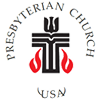Through weather that was a bit treacherous & slick! We gathered. We prayed. And we began checking-in. The homework from the prior week, as we considered, “How do we listen? How do we hear? How do we create space for conversation across difference?,” was to do just that — to listen across difference and to see what happens.
Folks asked if it counts when considering talking with their spouses — which of brought grins and laughter. And yet, that indeed is an important question, and one which might prove & provide a useful (though challenging!) model for us to consider. If we can be in the most intimate relationships we know with folks very different than us and still love them dearly, how can we do the same with people whom we do not share so much space? An interesting insight and question too was, do we need to respect (or accept) people’s ideas, or just the people? Important and possibly a nuanced query — however, importantly it was raised how for some (if not all) the opinions and ideas they hold dear are very connected to who they are as people. And there was also an important voice naming how important it is to be able to listen to people, how vitally important it is to allow people to be heard — that listening in and of itself is a great gift (a healing gift) that can be offered.
And we cut some of the conversation off short — as we shifted to turn toward scripture. And there was a caveat stated, the topic of listening across difference, of engaging challenging topics (yikes — dare I say — potentially divisive topics!) is not one that has been satisfied and doubtfully will be this side of “thy kingdom come.” And so we hold these thoughts and we encourage each other to listen well — and to especially listen well across difference (working to create spaces to listen & hear others!) — recognizing perhaps because we are deeply rooted in Christ, we have freedom to sincerely listen and intentionally hear others with great love and compassion (as God listens so lovingly to us!).
And we turned to scripture. This time — listening to the same story from three different perspectives, as offered in each of the synoptic gospels (Matthew, Mark, & Luke). Before reading the Holy Scripture, I invited us all to consider — what is Lent?, what is Lent to you? — as we heard the Word of God read.
In the listening, we found different elements of the story highlighted. We noticed how Mark is (always) direct and to the point. We wondered about just how the angels ministered to Jesus, and when. We pondered if Christ was tempted for all the 40 days or just in the end. We noticed all three persons involved in the story of the temptation narrative. We heard Christ’s understanding & knowledge of scripture more than the tempter. We saw how big of a question “IF” can be, and how Christ was solidly rooted in his identity. And we wondered too about what it means for us as those who have the opportunity annually to remember Lent and to observe Lent (this side of the cross).
Lent is a time when spiritual disciplines — especially fasting — often are engaged. Some add practices like a moment of meditation, time with scripture, or even new movement (like a walk) into their lives looking to seek God more intentionally and opening space in their lives so God might have the space to move & speak; others remove things in the same way looking to make more space for God choosing to fast from foods, or social media, negative thoughts, or even TV (things that likely are distracting us from listening to God). And while the goal of a spiritual discipline is not the actual discipline, but God (seeking God to find God — to be in the presence of God — to be as near to God as is possible!) it might prove useful to also understand that often these spiritual disciplines were understood in community. Think, maybe spending less money on groceries during the next 40 days & donating that money to a cause that feeds people or works to eliminate poverty, or if adding an additional prayer time thinking of praying for someone, a community, a region of the world that you would not typically pray about.
Our homework this week is all about what our own practices will be for Lent. Will you be adding something? Subtracting something? Praying something? How will you be seeking God in these next 40 days — beginning today on Ash Wednesday — and culminating on Easter/Resurrection Sunday? As we prayerfully consider how the Holy Spirit is guiding us this year & this Lenten season, may we all remember that indeed it was the Holy Spirit who lead (drove) Christ still dripping wet from his baptism and hearing the affirmation from God — “This is my Son, the Beloved, with whom I am well pleased!” — into the desert, the time of temptation, the time of semi-solitude and consecration before the next season was to begin — it was never a punishment, rather it is a time of preparation — I wonder what God is preparing us for…As we listen, we will be using a resource which can be found CLICKING HERE.
Excited about where God leads ~
Rev. Sabrina Slater
